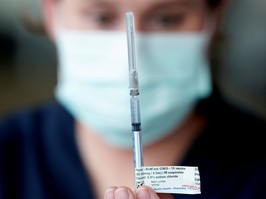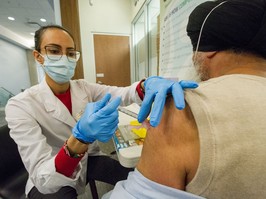it was one of the largest formal studies of its kind. the participants — 909 of them, recruited online from 29 countries — included teachers and people who worked in advertising, and ranged in age from their late teens to their late 70s. by gathering responses to an online questionnaire and challenging them to a task to measure their creativity, two university of toronto phd students completed one of the first psychological profiles of the growing microdosing community.“microdosing” is the regular consumption of small, non-trippy amounts of psychedelic substances such as lsd and “magic mushrooms.” the study found the microdosers scored lower overall on neuroticism and “dysfunctional” attitudes, and higher on a brief “wisdom” scale that measures beliefs like, “i am in touch with my feelings,” or, “i have a good sense of humour about myself.” they seemed more open-minded, more curious and more creative, coming up with more unique and unusual uses for a brick, and a knife. in other words, their mental health seemed to be flourishing.but while the students, thomas anderson and rotem petranker,
compared microdosers (current and former) against controls (no microdosing experience whatsoever), their study lacked a placebo arm, making it hard to prove cause and effect.now the duo — and their newly launched
university of toronto centre for psychedelic studies — are preparing what could be the first canadian study of its kind, a new randomized trial that will compare placebos to measured doses of psilocybin, the principal psychoactive compound found in certain types of fresh and dried mushrooms.to help cover the cost of equipment and participant expenses, they’ve launched
a gofundme page (backers who donate $100 or more will receive a free “psychedelic scientist” t-shirt). they’re also working with an interested philanthropic donor, and looking for a manufacturer of medical-grade psilocybin. “these things are expensive and there’s not really government funding for this kind of research, yet,” says anderson, a cognitive neuroscience phd student and the centre’s research director.microdosing, says petranker, the centre’s associate director, has become like a new religion — one based not on a god but on a desire for self-enhancement. with almost 40,000 users subscribing to the microdosing subreddit alone, clearly thousands are experimenting with (still very illegal) sub-hallucinogenic hits of acid and mushrooms in the hope of feeling less depressed, less anxious, more focused and more present in the moment, a practice the new york times has likened to an “illicit, chemical form of yoga.”the micro-hit trend began circa 2010 with silicon valley biohackers looking for a competitive edge. it grew with bestsellers like james fadiman’s 2011 book, the psychedelic explorer’s guide and, later, ayelet waldman’s memoir, a really good day: how microdosing made a mega difference in my mood, my marriage and my life. michael pollan’s how to change your mind explores psychedelic-assisted psychotherapy, where patients are issued “flight instructions” for the transformative therapy session ahead. (during his own guided, psilocybin session, pollan describes, in an excerpt published in the new york times, consuming a dried mushroom that was 10 cm long and had a cap the size of a golf ball.)unlike earlier lsd experiments in the ’50s, psychedelic-guided therapy today is largely based on a phenomenon known as “ego dissolution,” the belief that a person’s sense of self as distinct from the rest of the world dissolves during a psychedelic experience, allowing them to gain a new sense of connections and “boundlessness.”psychedelic psychotherapy is more about full-on macrodosing. microdosing, by contrast, involves “sub-perceptual” hits, typically one-tenth a recreational dose, meaning there should be no altered states of consciousness. no visions, no wavering lights, no breathing wood. it’s less about being at one with all forms of life and more about just getting through the day.a recent survey found more than half of canadians believe depression and anxiety have become “epidemic.” yet antidepressants dispensed in this country by the millions offer little over placebo for mild depression, studies show. prozac-like pills known as ssri’s in particular just aren’t cutting it, says petranker, a clinical psychology phd student at york university. “people are saying, at a grassroots level, what else can we possibly do?”according to fadiman, a psychedelic researcher and psychologist, what microdosing can do is muffle the negative feelings, without muffling everything else. with traditional antidepressants, people often feel numb to themselves. their sexual capacity is diminished. “what we found with microdosing is that people’s negative feelings again were less. but they also had more positive feelings, which has never appeared on anti-depressant studies,” fadiman says. “people felt less bad, and more good.”in their own
paper published last month in the journal of psychoactive drugs, fadiman, of the university of sofia, palo alto, and toronto clinical psychologist sophia korb report that people who followed a microdosing protocol — dose on day 1, no dose days 2 and 3, repeat cycle for a month — reported less depression, better mood, less procrastination, more energy and more patience with people whom they find otherwise frustrating, including people they sleep with. “people indicate they have incredibly improved focus and attention,” fadiman says. “i remember one young man who said, ‘i only use it when i have a coding problem.’”on a deeper level, john vervaeke, assistant professor in cognitive psychology and cognitive science at u of t, sees the revival in psychedelics partly a response to what he calls a “crisis of meaning” in western culture. microdosing can induce a kind of “cognitive flexibility,” vervaeke says, one “that helps you reframe how you are seeing the world, what’s salient to you, the kinds of connections you’re able to make, the kinds of insights into problematic situations that you’re capable of having.” like the mindfulness “revolution,” psychedelics are becoming a tonic for a society awash in depression, loneliness, cynicism, a drop in religious affiliation and an overall “increasing sense of bullshit — that we’re being manipulated to find things salient in a way that’s disconnected from whether or not they’re real or true to us,” he says.it’s about therapeutic or existential improvement, “how to make sense of your environment and realize what’s relevant to you.” this isn’t the “tune in, drop out” counterculture of the ‘60s. now it’s different, says vervaeke, co-author of
zombies in western culture. “it’s more about people trying to respond to the meaning crisis in culture.”for their part, anderson and petranker say the centre for psychedelic studies (headed by norman farb, an assistant professor of psychology) is all about open science, and using the best methodology to determine whether there is evidence of true benefit. (“if we don’t do it,” petranker says on their gofundme video appeal, “the pharmaceutical companies will, and will keep their results secret.”)microdosers have reported some physiological discomfort, petranker says, “stuff like gi (gastrointestinal) issues, or red eyes or difficulty sleeping.” people whose central symptom is anxiety also don’t appear to do well with microdosing. they either have more anxiety, or they’re more aware of it. the biggest drawback is its legal status. “people are stressed about how they need to buy drugs from a drug dealer,” petranker says.but if the science pans out, he believes psychedelics could eventually go the way of cannabis.
email: skirkey@postmedia.com | twitter:
 5 minute read
5 minute read













